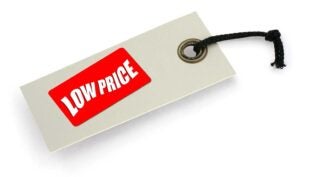
Most business owners think that you have to grow your sales from year to year. But is that really true?
Why Sales Decrease
First, sometimes you have declining sales through no fault of your own. People move, die, change jobs, a relative of a customer goes into your type of business. There are many reasons that you have no control over. You will lose the business even though you did nothing wrong.
You will choose not to do business with customers. They don’t pay their bills, you never satisfy them, or a variety of other reasons. In these cases you chose to lose a customer. That’s ok, too. In most cases, you will sell more to the remaining customers to compensate for these losses because you have the time to take care of their needs, educate them, and give them reasons to purchase more.
What about those sales you lose from indifference? You haven’t contacted customers for years and they forgot about you. You can choose to let them go or you can replace them. Should you?
Sales or Profits?
Some of those sales you lost through indifference might be a good loss. Here’s why. Business owners brag about increasing sales and almost never talk about increasing profits. I’ve seen many, many cases where sales increases are rapid and profits are flat or even declining. This often happens when they drop sales prices to “get a customer back.” They think that dropping their prices will win customers back. Not necessarily.
In these cases owners are increasing sales at the expense of profits. Why are they selling more to earn less money? Doesn’t make sense to me.
When you drop prices at the same cost level, gross profit decreases as sales increase. Then at some point, you are not generating enough gross profit to cover overhead and you lose money.
Volume is vanity. Profits are sanity. I’ve been saying that for years. You must have profitable sales. Sales volume counts. Profit volume counts more.
As a business owner, you decide what prices you charge customers. You decide to fire customers, or unfortunately customers can fire your company. Many times this happens through indifference. If you lose customers you just have to charge the remaining customers more. Can you? Should you?
Each year your costs go up: employees want raises, insurance increases, material costs go up, etc., so you have to raise prices just to stay at an even profit level. If you put customer losses on top of increases in prices that you must make just to stay even with inflation, declining sales can be a problem.
When to Decrease Prices
However, sometimes declining sales prices are necessary. I worked with a company owner whose closing ratio was under 20%. We found out that it wasn’t because he couldn’t sell. It was because his prices were so inflated as compared to his competition that few people bought. You say, “He should have sold the value.” He was. He knew how to sell. We decreased his prices about 10% and his closing ratio and his profits immediately increased.
His sales price decreased yet his profits increased. How? Each individual project was sold for less and therefore had less gross profit. However, by closing more sales his sales volume increased dramatically, his employee productivity increased dramatically which increased his overall gross profit. Since overhead decreased because of increasing productivity, more overhead was covered with the increasing project gross profit so there was more total profit each month! In this case, declining sales were ok.
What would happen if you reactivated those customers you lost through indifference but kept your prices at the same level for those reactivated customers? Your profit would increase because you would be selling more at the same overhead level.
What if you kept your sales at the same volume, or even sold less and increased profit? You’d have less headaches and more peace of mind. This can happen by raising prices at the same cost level, increasing productivity, and decreasing waste. Any one of these three activities can help you increase profits. That’s what’s most important.
The bottom line is profits. If you decrease sales prices to generate additional revenue make sure that your bottom line doesn’t suffer. If you decrease prices to reactivate customers who haven’t bought from you in a long time, be careful that your bottom line doesn’t suffer. Sometimes decreasing sales are ok. Just make sure the decrease in sales doesn’t decrease your bottom line.
Published: February 19, 2014
2686 Views
2686 Views












